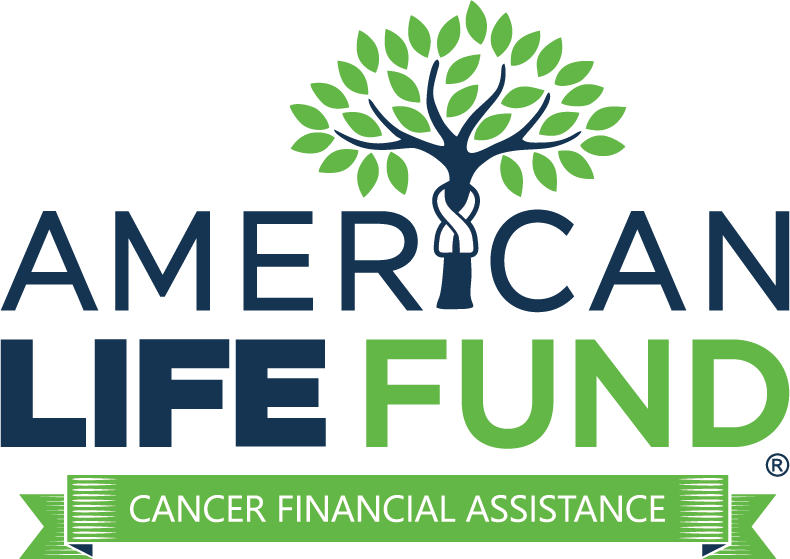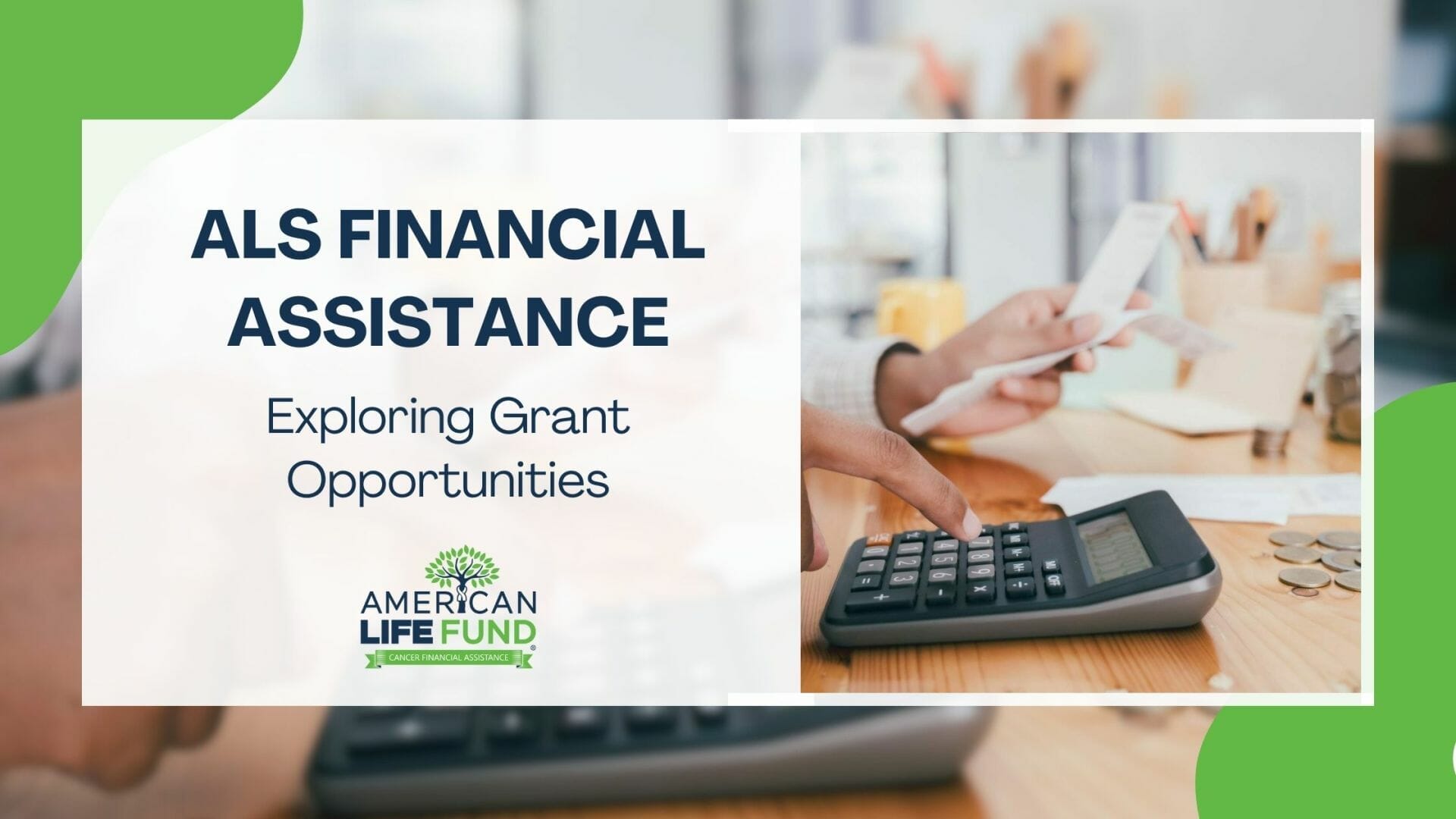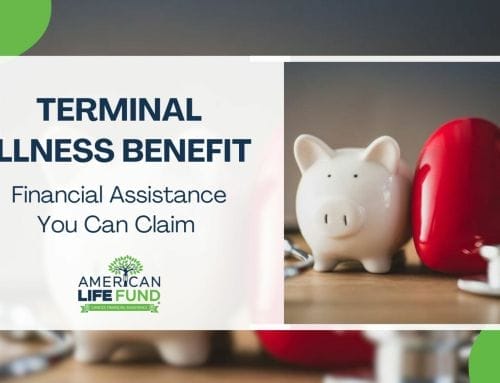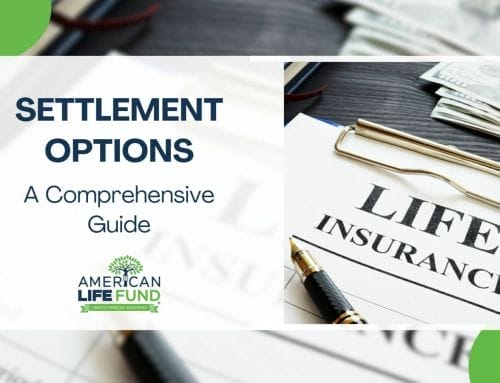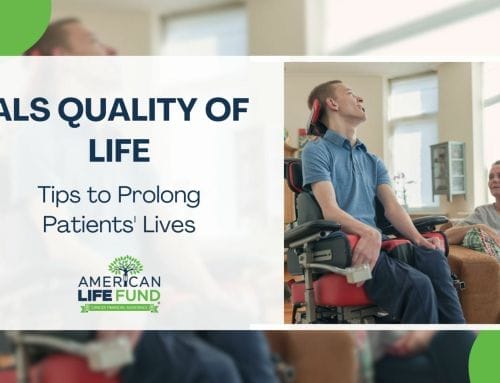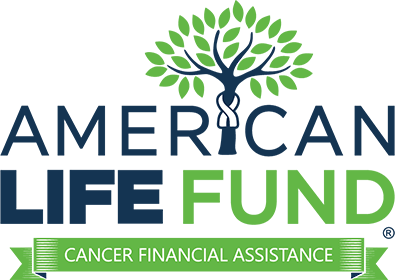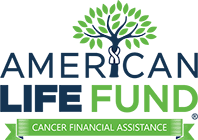Amyotrophic lateral sclerosis (ALS), also known as Lou Gherig’s Disease, can be an incredibly challenging disease for patients and their families, not only physically and emotionally, but also financially.
The good news is, treatment for ALS doesn’t have to be a financial burden. We at American Life Fund regularly work with ALS patients to help them financially, which is why we put together this comprehensive list of financial assistance and free money resources available to ALS patients.
In this guide to financial assistance and free money for ALS patients, we’ll cover the different financial resources available to ALS patients and their families, including grants, viatical settlements, government programs, and more.
What to Expect Financially as an ALS Patient
The costs associated with treating ALS are high, to say the least. The economic burden of a single ALS patient in the U.S. can be as high as $69,475 per year.
Unfortunately, even with insurance, the families of those diagnosed with ALS still carry a heavy financial responsibility. The entire cost of ALS care over the diagnosed individual’s lifetime is, on average, nearly $1.5 million.
So, what exactly is included in that nearly $1.5 million figure? In-home caregivers ($669,150), ventilation ($212,430), and hospital care ($114,558) make up the largest portions of the cost.
While around 85% of the total expense is paid by insurance and 6% is paid by charities, the remaining 9% is the responsibility of the patient’s already struggling family. This doesn’t take into account the time and emotional toll the disease takes, either.
Financial Challenges Faced by ALS Patients
The financial challenges faced by ALS patients are multifaceted. The progressive nature of the disease often leads to the inability to work, resulting in a loss of income. Additionally, medical bills, prescription medications, and specialized equipment can accumulate rapidly. The need for home modifications, caregiving services, and transportation adds to the financial strain. ALS patients require comprehensive financial assistance to ensure access to quality care and a decent quality of life.
Types of Financial Help For ALS Patients
If all of this sounds like a lot, just know that you are not alone. The good news is, whether you or a family member have been diagnosed with ALS, there is help available!
There are a multitude of organizations that offer free money and financial assistance to ALS patients. Take a look at the convenient list of resources we’ve compiled for you below.
Charitable Foundations and Organizations that Help ALS Patients
Charitable foundations work to raise money for ALS research, as well as care for those suffering from the disease. Certain charities and organizations offer financial assistance for ALS patients to help cover treatment costs, including those associated with medical expenses, equipment, and care, as well as living expenses.
And guess what else? Many of these organizations also offer access to service dogs, respite care, transportation, therapy, meal deliveries, and personal hygiene assistance.
The following organizational funds offer financial assistance in the form of grants to ALS patients in need:
- Healthwell ALS Premium Assistance Fund
- Project Main Street Financial Help Fund
- Les Turner ALS Foundation Grants & Equipment Assistance (to qualify, you must attend the Lois Insolia ALS Clinic at Northwestern Medicine)
- ALS Association Financial Assistance Grants (financial grants are dependent on geographic location; click on your local chapter to see what’s available)
- Patient Advocate Co-payment Relief Fund for ALS
- Needymeds (this organization maintains a long running list of financial assistance resources available to ALS patients)
How Viatical Settlements Help ALS Patients
What most people don’t know is that a life insurance policy is considered an asset that you own, meaning insurance policy holders can sell their life insurance for a lump-sum cash payment, also known as a viatical settlement.
With a life insurance viatical settlement, the funds are tax-free and non-regulated, meaning YOU decide how they are spent.
Not only can you pay towards your medical expenses, but also towards the cost of living expenses, or even a luxurious vacation with your loved ones. As the settlement holder, the freedom and the choice is uniquely yours!
How it works: Unlike life settlements, viatical settlements are designed for life insurance policyholders with life-threatening illnesses, reduced life expectancies, or chronic health issues.
ALS patients with life insurance policies can enter agreements with third party buyers to sell their life insurance policy in return for a lump-sum payment (more than the cash value of the life insurance policy, but less than the death benefit).
The life settlement company takes over by paying the monthly insurance policy premiums, and receives the death benefit after the seller’s passing.
If you’re considering selling your life insurance policy, we at American Life Fund are here to help. For us, the most important thing is alleviating the financial burden associated with ALS care, reducing stress, and enabling you to spend more time on the things that matter.
Through our hassle-free application process, American Life Fund will help you get an immediate cash offer for your insurance policy.

Government Assistance
If you need consistent, ongoing monthly help, there are several government assistance programs available for ALS patients who qualify.
Government financial help can be an important avenue when it comes to affording ALS treatment and care.
Programs such as Social Security Disability Insurance (SSDI) offer monthly cash benefits, as long as the person has paid FICA and Medicare taxes. Medicare coverage is also available for those over 65 or those who are eligible for SSDI.
Additionally, Supplemental Security Income (SSI) is an option for those over 65, and pays for food, clothing, shelter, and other basic needs. Medicaid also helps low-income individuals in need of care.

Drug & Medical Equipment Assistance
If you need ALS help with drug and medical equipment, many manufacturers provide supplies to ALS patients through charitable organizations, insurance, or even on their own as a form of charity.
By providing a diagnosis, you may be able to get discounted or even free medications and equipment.
One great resource is Team Gleason; they offer assistance in the form of access to necessary technology, equipment, and services for ALS patients. Additionally,
The Muscular Dystrophy Association offers help in finding local equipment resources for ALS patients in need.
Thankfully, programs like PPA (Partnerships for Prescription Assistance) can help by providing access to free or reduced cost prescriptions.
Another resource offering financial assistance for ALS patients is Needy Meds. Needy Meds offers a free Drug Discount Card, which provides savings of up to 80% on prescription medications.
Also, the Medicine Assistance Tool can help ALS patients to locate additional resources for financial assistance for prescriptions.
Conclusion
While there is currently no cure for ALS, that doesn’t mean that those who have been diagnosed with the disease can’t still live incredible lives with some help. There are many ALS support services out there.
American Life Fund is here to offer help to those who have been diagnosed with ALS. You can reclaim your financial freedom by getting in touch with American Life Fund today.
Is There Help For People With ALS?
Yes! Government assistance is available through Social Security Disability Insurance, Supplemental Security Income, and Medicare/Medicaid, charities such as the ALS Foundation for Life, and viatical settlement companies such as American Life Fund.
What Is ALS Assistance?
ALS assistance can be anything from financial assistance to pay bills, provision of medical equipment and drugs, hospice and in-home care, and physical/mental therapy. Discounts or free care may be available.
What Kind of Medical Assistance Is Needed For ALS?
Medical assistance for ALS may include hospital stays, in-home and hospice nursing care, medication, and equipment such as wheelchairs and breathing machines.
How Much Does It Cost to Take Care of Someone With ALS?
The average annual cost of care for an individual with ALS in the United States is $69,475. Lifetime care is, on average, $1,433,992. This cost comes from in-home caregivers ($669,150), ventilation ($212,430), and hospital care ($114,558)
How Do You Comfort Someone With ALS?
Giving someone with ALS your time is the most meaningful way to support them. People with ALS tend to feel isolated. Spending time in conversation and helping them pursue their interests to their ability is essential. You can also help by attending ALS support groups and joining in fundraising efforts.
What Are Some Free Services for ALS Patients?
Medicaid is free for low-income patients. I AM ALS is a free service that helps connect patients to professionals that can guide them to resources for ALS patients, lend a supportive ear, and answer questions. The ACCESS Program offers free legal aid advice on how to get Social Security assistance.
Is There Housing Assistance for ALS Patients?
There are care facility locators that can help ALS patients to find housing, as well as specific charities that are building or have built facilities geared toward ALS patients and their families.
Are ALS Patients Eligible For Disability Benefits?
Yes, ALS patients are eligible for disability benefits. The Social Security Administration recognizes ALS as a qualifying condition under the Compassionate Allowances program, expediting the approval process.
Can ALS Patients Receive Financial Aid For Home Modifications?
Yes, there are financial aid programs and non-profit organizations that provide assistance for home modifications to improve accessibility for ALS patients.
